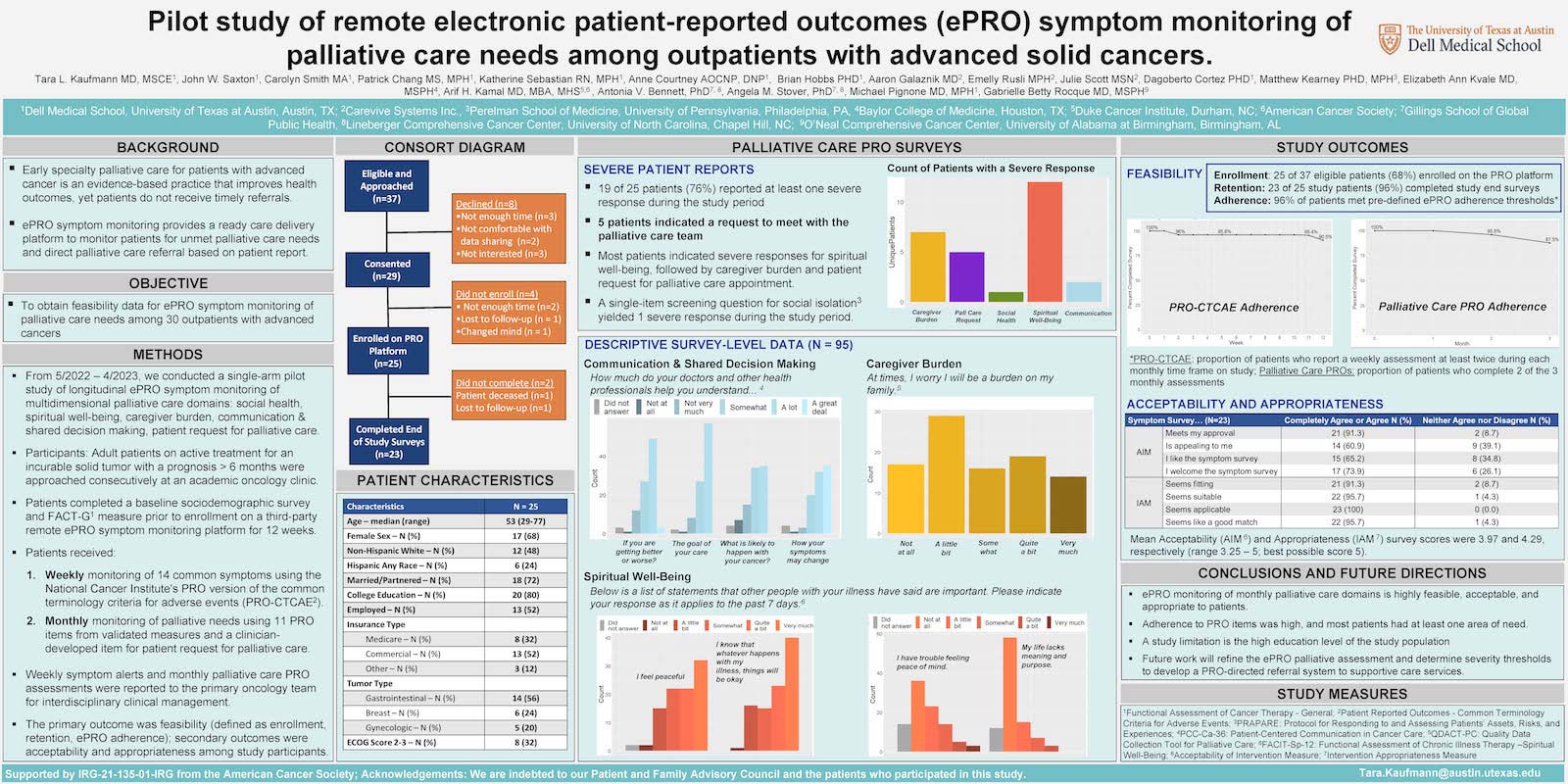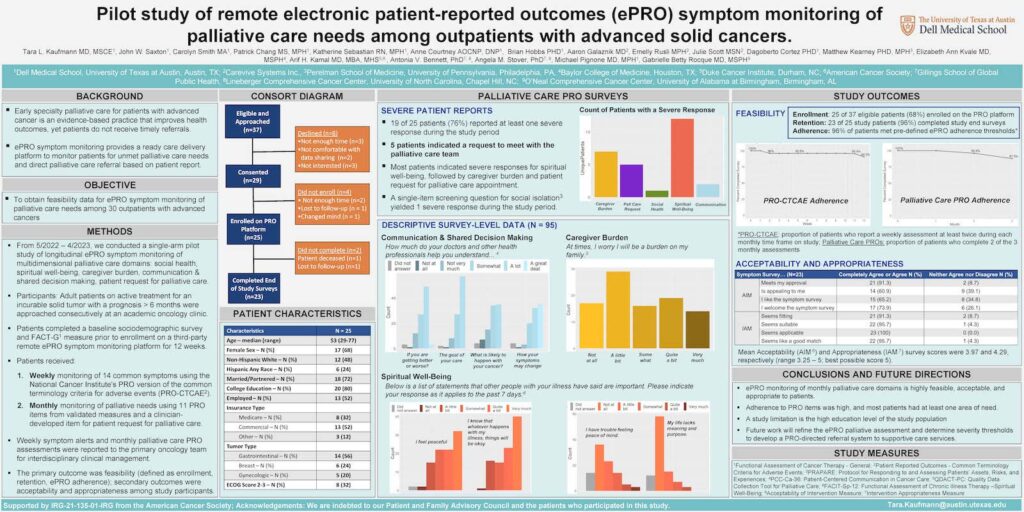
Authors:Tara L. Kaufmann MD, MSCE1, John W. Saxton1, Carolyn Smith MA1, Patrick Chang MS, MPH1, Katherine Sebastian RN, MPH1, Anne Courtney AOCNP, DNP1, Brian Hobbs PHD1, Aaron Galaznik MD2, Emelly Rusli MPH2, Julie Scott MSN2, Dagoberto Cortez PHD1, Matthew Kearney PHD, MPH3, Elizabeth Ann Kvale MD, MSPH4, Arif H. Kamal MD, MBA, MHS5,6 , Antonia V. Bennett, PhD7,8, Angela M. Stover, PhD7,8, Michael Pignone MD, MPH1, Gabrielle Betty Rocque MD, MSPH9
1Dell Medical School, University of Texas at Austin, Austin, TX; 2Carevive Systems Inc., 3Perelman School of Medicine, University of Pennsylvania, Philadelphia, PA, 4Baylor College of Medicine, Houston, TX; 5Duke Cancer Institute, Durham, NC; 6American Cancer Society; 7Gillings School of Global Public Health, 8Lineberger Comprehensive Cancer Center,University of North Carolina, Chapel Hill, NC; 9O’Neal Comprehensive Cancer Center, University of Alabama at Birmingham, Birmingham, AL
Background
- Early specialty palliative care for patients with advanced cancer is an evidence-based practice that improves health outcomes, yet patients do not receive timely referrals.
- ePRO symptom monitoring provides a ready care delivery platform to monitor patients for unmet palliative care needs and direct palliative care referral based on patient report.
Objective
- To obtain feasibility data for ePRO symptom monitoring of palliative care needs among 30 outpatients with advanced cancers.
Methods
- From 5/2022 –4/2023, we conducted a single-arm pilot study of longitudinal ePRO symptom monitoring of multidimensional palliative care domains: social health, spiritual well-being, caregiver burden, communication & shared decision making, patient request for palliative care.
- Participants: Adult patients on active treatment for an incurable solid tumor with a prognosis > 6 months were approached consecutively at an academic oncology clinic.
- Patients completed a baseline sociodemographic survey and FACT-G1 measure prior to enrollment on a third-party remote ePRO symptom monitoring platform for 12 weeks.
- Patients received:
- Weekly monitoring of 14 common symptoms using the National Cancer Institute’s PRO version of the common terminology criteria for adverse events (PRO-CTCAE2).
- Monthly monitoring of palliative needs using 11 PRO items from validated measures and a clinician-developed item for patient request for palliative care.
- Weekly symptom alerts and monthly palliative care PRO assessments were reported to the primary oncology team for interdisciplinary clinical management.
- The primary outcome was feasibility (defined as enrollment, retention, ePRO adherence); secondary outcomes were acceptability and appropriateness among study participants.
Conclusions and Future Directions
- ePRO monitoring of monthly palliative care domains is highly feasible, acceptable, and appropriate to patients.
- Adherence to PRO items was high, and most patients had at least one area of need.
- A study limitation is the high education level of the study population.
- Future work will refine the ePRO palliative assessment and determine severity thresholds to develop a PRO-directed referral system to supportive care services.

Click to enlarge image
